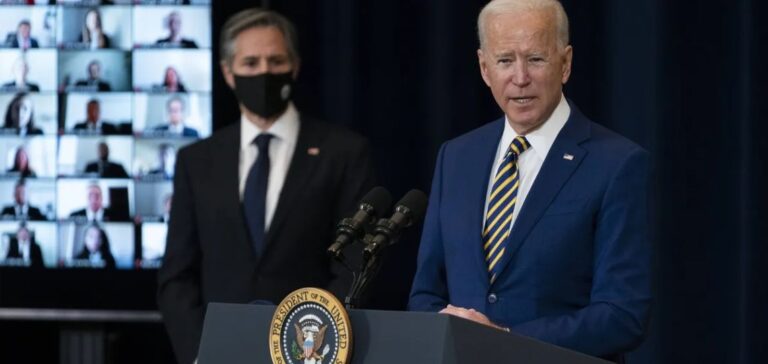The Iran nuclear deal, or Joint Comprehensive Plan of Action, was signed in 2015 by France, the United Kingdom, Germany, the United States, China, Russia, the European Union and Iran. The aim of the text was to control Iran’s nuclear program and lift economic sanctions against the country.
Calling the agreement a lie, Donald Trump’s administration decided to tighten economic sanctions against Tehran and exit the nuclear deal on May 8, 2018. In response, Iran has gradually broken away from the rules imposed by this agreement. A situation of high tension that could perhaps evolve under new President Joe Biden.
A US return to the Iran nuclear deal
Joe Biden told the New York Times that he would like to return to the Iran nuclear deal signed by Barack Obama and lift economic sanctions. However, the return of the United States is conditional on Iran’s strict compliance with the rules of the agreement.
Iran possessed more than 12 times the amount of enriched uranium authorized by the agreement
In particular, Iran has breached the 3.6% ceiling on uranium enrichment, reaching 4.5% according to BBC. The International Atomic Energy Agency has pointed out that Iran possesses more than 12 times the amount of enriched uranium authorized by the agreement. A development that could lead to the creation of a nuclear bomb, even though Iran has always stressed that its nuclear ambitions are peaceful.
For the future president of the United States, this agreement is the best way to avoid an arms race in the Middle East and guarantee stability in the region.
The latter declared:
“The last thing we need in this part of the world is an increase in nuclear capacity.”
Tehran may finally be ready to respect the agreement
According to BBC News, Iranian Foreign Minister Mohammad Javad Zarif told Aljazeera that the country would meet its commitments under the 2015 agreement if Joe Biden lifted all sanctions.
Iran demands guarantees
Moreover, Teheran has enjoined the incoming Biden administration to prove to them that once they join the agreement, they will not leave it like their predecessors. Both parties seem to want the other to readopt the terms of the agreement first.
However, the Iranian government has rejected any negotiations on extending certain clauses that expire in 2025. Joe Biden had floated the idea of extending by 15 years the clause that prevents Iran from producing uranium at the level needed for a nuclear weapon.
Iranian government refuses UN supervision
On December 2, the Iranian parliament passed a bill that would prevent UN inspections of its nuclear sites. It also demands that the government resume uranium enrichment at 20%, well above the 3.67% agreed under the deal. A law that is not supported by President Hassan Rouhani, and which could be repealed if the US lifts sanctions, according to Javad Zarif.
The latter told The Guardian:
“The Joint Program of Action and any international agreement is not a revolving door. It’s not that you can come in, impose restrictions on others, enjoy the privileges of membership and suddenly decide to leave and inflict $150 billion [110 milliards de livres] in damage on the Iranian people.”
Heightened tensions as Donald Trump’s term draws to a close
Donald Trump’s administration plans to step up sanctions against Tehran for his last few in office. According to Elliott Abrams, US special envoy for Iran, this decision has heightened tensions between the two countries and raised hopes of appeasement in Joe Biden.
The latter declared for Reuter:
“We’ll have next week, and the week after, and the week after that – throughout December and January, there will be sanctions that deal with weapons, weapons of mass destruction, human rights. … So this will continue for another two months, until the end.”
The United States is ready to add new sanctions
The US ambassador to Lebanon, Dorothy Shea, added that the US could impose new sanctions. Notably against Lebanese personalities for corruption and aiding the Iranian-backed Hezbollah group. These relations were further complicated by the November 27 assassination of Mohsen Fakhrizadeh, a senior scientist in Iran’s nuclear and missile programs. An act perpetrated, for Teheran, by Israel and Washington.
US President Donald Trump’s latest actions could therefore make dialogue between Joe Biden and Tehran even more difficult.





















